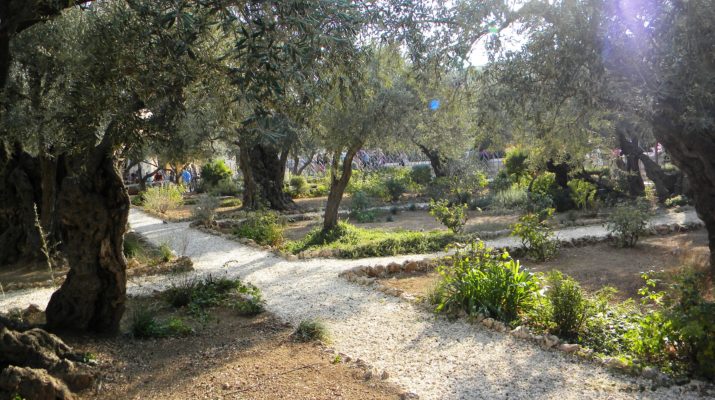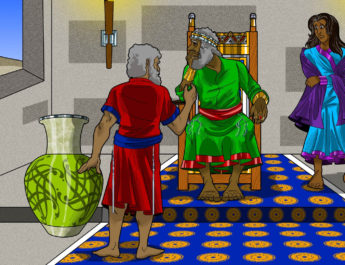Acts 4:32-35
Eastertide B20
32 Now the whole groupA of those who believedB were of one heartC and soul,D
A “whole group” = plethos. From pletho (to fill, accomplish, supply; to fill to maximum capacity). This is fullness, multitude, great number.
B “believed” = pisteuo. From pistis (faith, faithfulness, belief, trust, confidence; to be persuaded or come to trust); from peitho (to have confidence, urge, be persuaded, agree, assure, believe, have confidence, trust). This is to believe, entrust, have faith it, affirm, have confidence in. This is less to do with a series of beliefs or doctrines that one believes and more to do with faithfulness, loyalty, and fidelity. It is trusting and then acting based on that trust.
C “heart” = kardia. Literally the heart, but figuratively mind, character, inner self, will, intention, thoughts, feelings. Also, the center of something. The word heart is only used figuratively in the Old and New Testaments. This is where “cardiac” comes from.
D “soul” = psuche. From psucho (to breathe, blow). This is breath, the breath of life, the self, individual, soul. This is the word for that which makes a person unique – their identity, will, personality, affections. This isn’t the soul as the immortal part of us, but as our individuality. It is also not life as a general concept, but specific to people. This is where the words psyche and psychology come from.
and no one claimed privateE ownership of any possessions,F but everything they owned was held in common.G
E “private” = idios. This is something that belongs to you or that is personal, private, apart. It indicates a stronger sense of possession than a simple possessive pronoun. This is where “idiot” comes from (denoting someone who hasn’t had formal training or education and so they rely on their own understanding).
F “possessions” = huparcho. From hupo (by, under, about, subordinate to) + archo (to rule, begin, have first rank or have political power). This is to begin or be ready, to exist or possess. It is what one already has or possesses.
G “in common” = koinos. 14x in NT. From sun (with, together with). This is common, shared – something for ordinary or everyday use. It can also denote unclean, unholy, or profane – unholy rather than something reserved for a sacred purpose.
33 With great powerH the apostlesI gaveJ their testimonyK
H “power” = dunamis. From dunamai (to be able, have power or ability). This is might, strength, physical power, efficacy, energy, and miraculous power. It is force literally or figuratively – the power of a miracle or the miracle itself.
I “apostles” = apostolos. From apostello (to send, send away, send forth as a messenger, to commission); {from apo (from, away from) + stello (to set, arrange, prepare, provide for)}. This is a messenger – someone sent out on a mission as an envoy or delegate. It can also refer to someone set at liberty. Generally, this is a messenger who is meant to be a representative of the one who sent them. They are thus, set apart on a mission literally or figuratively.
J “gave” = apodidomi. From apo (from, away from) + didomi (give, offer, place, bestow, deliver; give in a literal or figurative sense). This is to give back, return, give away. It is to restore as when one makes payment – to rend what is due, to sell.
K “testimony” = marturion. 19x in NT. From martus (a witness whether having heard or seen something; witness literally, judicially, or figuratively; by analogy, a martyr). This is something that counts as evidence whether a witness, testimony, or other proof.
to the resurrectionL of the LordM Jesus,N and great graceO was upon them all.
L “resurrection” = anastasis. From anistemi (to raise up, rise, appear; to stand up literally or figuratively. Can also mean to resurrect); from ana (upwards, up, again, back, anew) + histemi (to make to stand, place, set up, establish, appoint, stand by, stand still, stand ready, stand firm, be steadfast). This is literally standing up or standing again. It is used figuratively for recovering a spiritual truth. It can be raising up, rising, or resurrection.
M “Lord” = kurios. From kuros (authority, supremacy). This is a respectful address meaning master or sir. It refers to one who has control or power greater than one’s own. So, it was also applied to God and Jesus as Master or Lord.
N “Jesus” = Iesous. From Hebrew Yehoshua (Joshua, the Lord is salvation); {from YHVH (proper name of the God of Israel; the self-existent and eternal one); {from havah (to become) or from hayah (to come to pass, become, be)} + yasha (to deliver, defend, help, preserve, rescue; properly, to be open, wide or free, which implies being safe. So, in a causative sense, this is to free someone)}. This is Jesus or Joshua in Greek – the Lord saves or the Lord is salvation.
O “grace” = charis. From chairo (to rejoice, be glad; used to say hello; properly, delighting in the grace of God or experiencing God’s favor); from char– (to extend favor, lean towards, be inclined to be favorable towards). This is grace, kindness, favor, gratitude, thanks. It is the sense of being inclined to or favorable towards – leaning towards someone to share some good or benefit. This can be literal, figurative, or spiritual. It is grace as abstract concept, manner, or action.
34 There was not a needyP person among them, for as many as ownedQ landsR or housesS, T
P “needy” = endees. 1x in NT. From en (in, on, at, by, with) + deo (to tie, bind, fasten, impel, compel; to declare something against the law or prohibited). This is in need, lacking, poor.
Q “owned” = ktetor. 1x in NT. From ktaomai (to get, purchase, possess). This is owner.
R “lands” = chorion. 10x in NT. From chora (space, land, region, fields, open area); from chasma (gap, gulf, chasm, open space); from chasko (to gape, yawn). This is place, estate, possession, piece of ground, property.
S “houses” = oikia. From oikos (house – the building, the household, the family, descendants; the temple). This is a house, household, goods, property, family, or means.
T {untranslated} = huparcho. Same as “possessions” in v32. See note F above.
soldU them and broughtV the proceedsW of what was sold.X
U “sold” = poleo. This is to barter or sell. It can also refer to the thing that is sold.
V “brought” = phero. This is to bear, bring, lead, or make known publicly. It is to carry in a literal or figurative sense
W “proceeds” = time. From tino (to pay, be punished, pay a penalty or fine because of a crime); from tio (to pay respect, value). This has to do with worth or something’s perceived value. Literally, it means price, but figuratively, it means the honor or value one sees in someone or something else. It can be esteem or dignity. It can also mean precious or valuables.
X “sold” = piprasko. 9x in NT. From pernemi (to sell by export). This is to sell with travel involved. It can also mean to sell into slavery or to be devoted to.
35 They laidY it at the apostles’ feet, and it was distributedZ to each as any had need.AA
Y “laid” = tithemi. This is to put, place, set, fix, establish in a literal or figurative sense. Properly, it is placing something in a passive or horizontal position.
Z “distributed” = diadidomi. Related to “gave” in v32. From dia (through, across to the other side, thoroughly) + didomi (see note J above). This is to hand over, divide, give out to a crowd, distribute.
AA “need” = chreia. From chraomai (to use, make use of, give what is needed, act in a specific way, request); related to chre (what is proper, fitting, or necessary). This is the is task, business, or affair. It can also be need, want, or destitution.
Image credit: “East Jerusalem, Olive Mountain” – the garden of Gethsemane – by Britchi Mirela, 2014.




